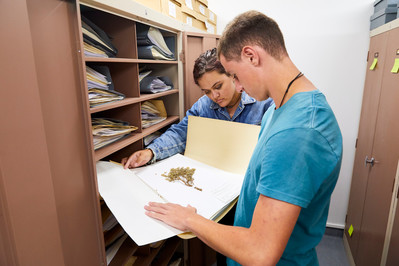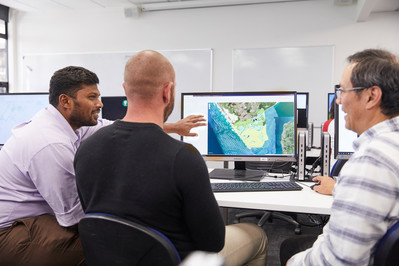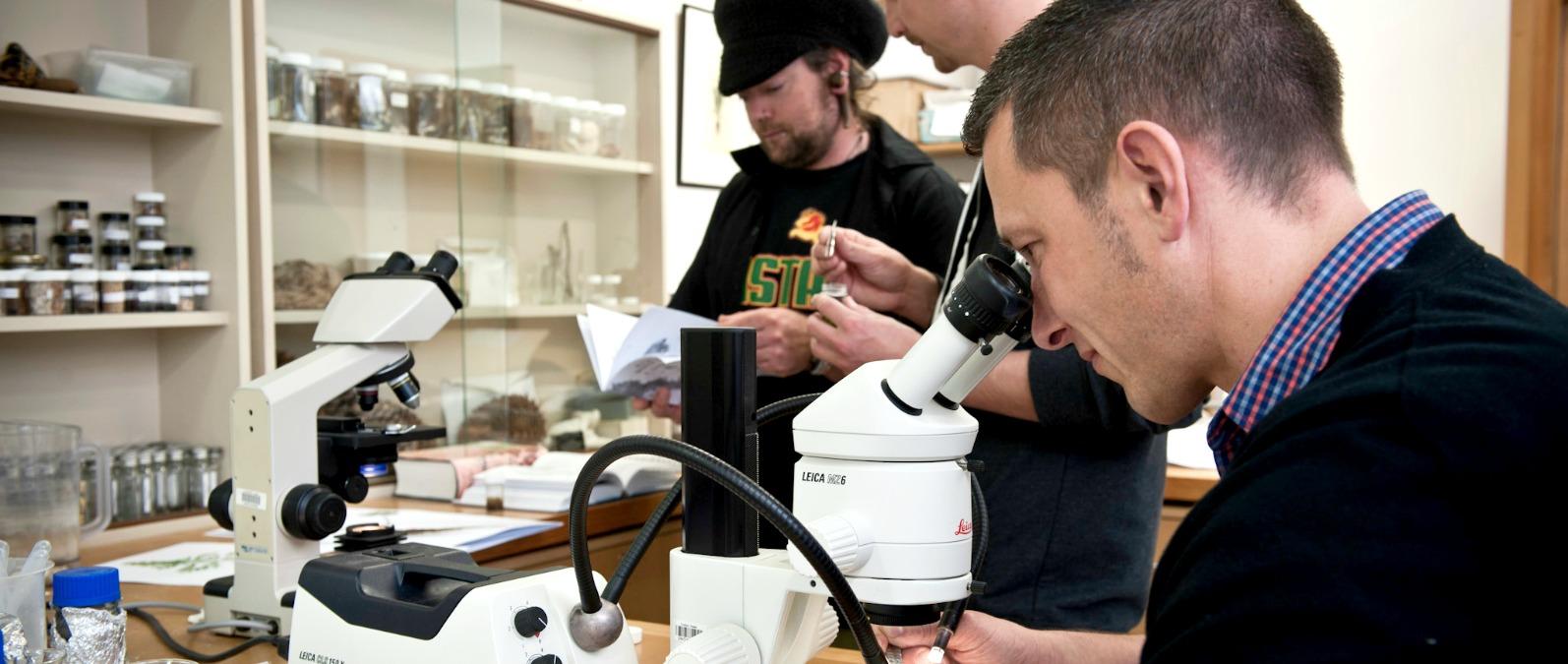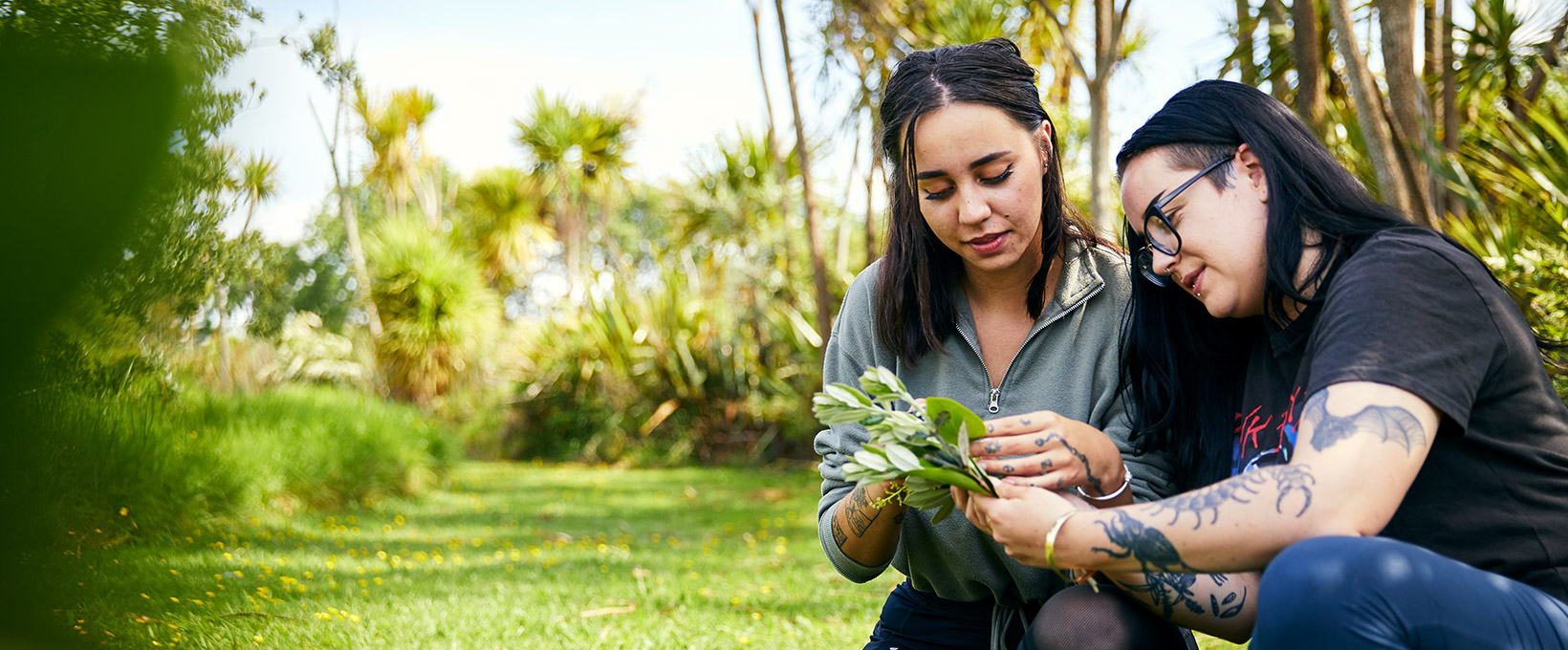Programme overview
As a biodiversity management student, you’ll explore how ecosystems function and support biological diversity, and how managers of biodiversity are responding to increasing concern over the impact of human activities on the planet.
Find out how society views and influences the natural environment, discover how social, cultural, and policy frameworks influence management decisions, and develop plant identification knowledge and skills.
You’ll also develop an appreciation of the influence that government agencies, non-statutory organisations, and voluntary bodies have on biodiversity and biosecurity.
Highlights
- Developed in response to increasing global concerns over the human impact on our natural environment
- Emphasis on practical application: possible work experience in applied settings for organisations like the Ministry for Primary Industries (MPI), Department of Conservation (DOC), the Auckland Council, or volunteer organisations
- A chance to complete a research project in an area of your own interest to develop the skills you'll need for a career in your chosen field
- One of our biggest strengths is plant identification, a skill well-regarded by the conservation industry. We’ll help you develop your knowledge and confidence in plant identification.
- A teaching team of highly qualified and respected scientists and industry consultants, including botanists and an ornithologist
Double major
Can't decide between animals or the environment? Study a double major, and you'll get the best of both worlds with a selection of animal- and environment-related courses.
Studying for a double major is highly recommended. Double majors further grow your knowledge and capabilities, making you more employable and competitive in the job market.
Where from here
The Herbarium
With a collection of 11,500 scientifically preserved plants, fungi, lichens and seaweeds, the Herbarium is where you'll learn about plant specimen collection and preparation techniques.
Lots of important research work happens in the Herbarium including investigations into invasive and native plants and fungi, as well as the studies of an active lichen research group.
There’s also the opportunity to volunteer to assist with accessioning and curation.

The GIS Laboratory
Where science meets tech, the GIS Laboratory has 40 workstations complete with industry standard ArcGIS and associated software.
Running on high-performance Graphics Processing Units on Virtual Device Interfaces, with large 24-inch monitors, these computers can run realistic 3D modelling, spatial analysis, image rendering, and other computing intensive tasks.

Applied Molecular Solutions Laboratory
If you’re interested in the genetics of animals, plants and fungi, this lab is fully equipped for DNA extraction and analysis.
Second year Bachelor of Applied Science students gain first-hand experience in the lab, and in their third year if they take on a research project that utilises molecular techniques, this lab will become their second home.
Some cool research projects currently on the go include DNA barcoding of possible biological control agents, bioremediation of contaminated soils, and the molecular analysis of seabird diets.

Admission requirements
What you will need to study this programme.
Domestic students
International students
Academic requirements
As a part of this requirement, you must be at least 16 years of age and meet one of the below;
- All applicants must be at least 16 years of age when they begin their studies, and they should meet the country-specific admission requirement;
And English entry requirements;
If English is not your first language, you will also need at least one of the following qualifications:
- Evidence of an IELTS (Academic) band score of at least 6 with no band score lower than 5.5
- University Entrance Literacy: 8 credits at Level 2 or above in English or Māori (4 in Reading, 4 in Writing); or
- Evidence of English language proficiency as outlined in the NZQA Rules on the Unitec English Language Requirements for International Students Web-page.
Don’t meet these Academic requirements?
- If you don’t meet the academic criteria, our Bridging Education Programmes can help you qualify. Apply online, and we’ll discuss your next steps.
- If you don’t meet the above criteria, special or discretionary admission may apply; your eligibility will be determined at the interview.
For more information, download the programme regulations (PDF 493 KB)
Courses and timetables
For more details on the courses including timetables, please click on the course names below.
Debug
| Courses | Credits | Aim |
|---|---|---|
| Diversity of Life: Plants and Fungi(NSCI5101) | 15.0 credits (0.125 EFTS) | To develop an understanding of the basis of classification of plants, fungi and protists and their underlying structure and function. |
| Diversity of Life: Animals(NSCI5103) | 15.0 credits (0.125 EFTS) | To develop an understanding of the basis of the taxonomic classification of the major animal groups, their phylogenetic relationships and how different animal forms have adapted to different ways of living. |
| Principles of Ecology(NSCI5731) | 15.0 credits (0.125 EFTS) | To develop an understanding of the interactions that occur between organisms and their environment. |
| Science and Society(NSCI5735) | 15.0 credits (0.125 EFTS) | To explore ways in which Science and human society have developed and interacted throughout history; to equip students with an appreciation that science takes place within a broad cultural framework and to recognise the validity of differing points of view. |




